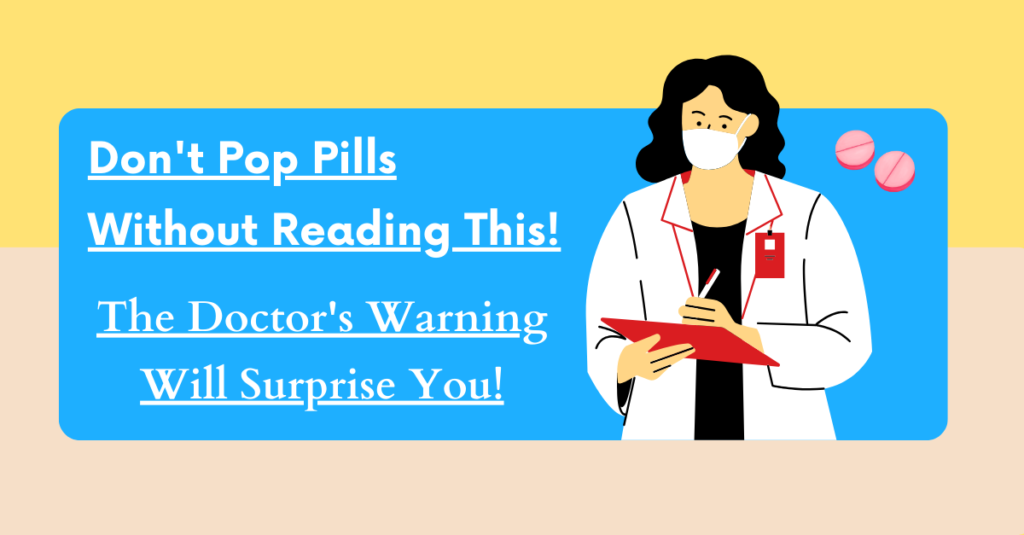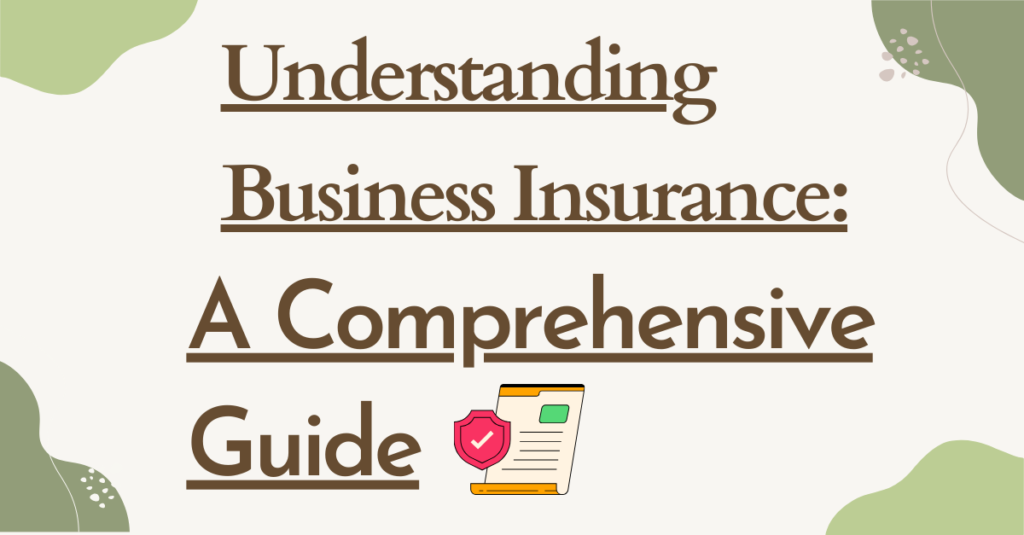Don’t Pop Pills Without Reading This! The Doctor’s Warning Will Surprise You!
Introduction
In a world where convenience often reigns supreme, the temptation to self-medicate has never been more prevalent. We live in an era where information is just a click away, and it’s all too easy to search for quick fixes to our health concerns online. However, the truth is that the pills you’re about to pop may carry hidden dangers you’re completely unaware of. Before you reach for that over-the-counter remedy or even a prescription medication, it’s absolutely crucial to heed the doctor’s warning.
This article will unveil the shocking and eye-opening reasons why you should never take any medication without first consulting a healthcare professional. From potential life-threatening allergic reactions to dangerous drug interactions, the risks are far too great to ignore. Your health is on the line, and the doctor’s advice may just save your well-being in ways you never imagined. So, before you take that next dose, read on to discover why it’s essential to consult with a doctor first. Your future health may depend on it!
-
The Pervasive Temptation of Self-Medication
In an era of instant gratification and readily available information, self-medication has become increasingly prevalent. The allure of quick solutions to common health issues is undeniable. Got a headache? Grab a pain reliever. Can’t sleep? Try an over-the-counter sleep aid. While these remedies may provide temporary relief, they often mask underlying problems and can lead to more significant health issues down the road.
The convenience of self-medication can make it easy to bypass the essential step of consulting a healthcare professional before taking any medication. Yet, this seemingly harmless shortcut can have dire consequences, ranging from ineffective treatment to severe health complications.
-
Understanding the Significance of Consultation
Before delving into the reasons behind the importance of consulting a doctor before taking medication, it’s crucial to understand the primary role of healthcare professionals in this process. Doctors and other healthcare providers are extensively trained to assess an individual’s health, make accurate diagnoses, and prescribe appropriate treatments.
Here are some key aspects that underscore the significance of seeking a doctor’s guidance before taking any medication:
1. Assessing the Individual’s Health Condition
Doctors consider a multitude of factors when evaluating a patient’s health condition, including medical history, existing health issues, allergies, age, weight, and gender. These factors play a crucial role in determining the most suitable medication and dosage for a specific individual.
2. Tailoring Medication to Individual Needs
Medical professionals have the expertise to tailor medications to suit an individual’s unique requirements. This personalization ensures that the treatment is as effective as possible while minimizing the risk of adverse reactions or side effects.
-
Identifying Potential Risks
Now that we’ve established the importance of consulting a doctor let’s explore some of the significant risks associated with self-medication:
1. Allergies and Adverse Reactions
One of the most critical aspects of medication safety is ensuring that you are not allergic to any of the components in a given drug. Allergic reactions can range from mild rashes to severe anaphylactic shock, which can be life-threatening.
By consulting a doctor before starting any medication, you have the opportunity to discuss your medical history and any known allergies. A healthcare professional can prescribe medications that are less likely to trigger allergic reactions and monitor your response to treatment.
2. Drug Interactions
Many medications have the potential to interact with each other, leading to unpredictable and sometimes dangerous outcomes. These interactions can occur between prescription drugs, over-the-counter medications, or even dietary supplements.
A doctor can review your complete medical history and current medication regimen to identify potential interactions and make informed decisions about which drugs are safe and appropriate for you. This thorough evaluation can prevent adverse reactions and ensure the effectiveness of your treatment plan.
3. Pre-existing Conditions
If you have pre-existing health conditions, certain medications may exacerbate or complicate your condition. For example, taking a medication that raises blood pressure when you have hypertension can lead to serious health complications.
Consulting a doctor allows you to discuss your medical history openly and receive guidance on how specific medications may impact your existing conditions. This proactive approach can prevent complications and ensure your overall well-being.
-
Maximizing Treatment Efficacy
Another critical aspect of consulting a doctor before taking any medication is to maximize the effectiveness of your treatment. Here’s how a doctor’s guidance can ensure that your treatment plan is on track:
1. Ensuring Proper Dosage and Administration
The correct dosage and administration of medication are vital for achieving the desired therapeutic effects. Taking too much or too little of a medication can result in ineffective treatment or even harm.
Doctors carefully consider various factors, such as your age, weight, and gender, when prescribing the appropriate dosage. They also provide clear instructions on how and when to take the medication to optimize its effectiveness.
2. Monitoring and Adjusting Treatment
For individuals with chronic conditions, regular check-ups with a healthcare professional are essential to monitor the progress of treatment. Doctors can assess whether the medication is working as intended, make necessary adjustments, and address any emerging issues promptly.
By consulting a doctor regularly, you can ensure that your treatment plan remains effective and is tailored to your changing health needs.
-
Legal and Ethical Considerations
Apart from the medical aspects, there are legal and ethical considerations surrounding the need to consult a doctor before taking medication:
1. Prescription Requirements
Many medications, especially those with a higher potential for misuse or side effects, require a prescription from a licensed healthcare provider. Attempting to obtain prescription drugs without a proper consultation is not only illegal but also dangerous.
Certain medications, such as opioids and benzodiazepines, have strict legal restrictions to prevent misuse and addiction. Ignoring these regulations can lead to severe legal consequences and put your health at risk.
2. Ethical Responsibilities of Healthcare Professionals
Healthcare providers have an ethical duty to provide informed consent to patients. This means ensuring that patients understand the potential risks and benefits of their treatment options. By consulting a doctor, patients receive essential information about the medication, its expected effects, potential side effects, and alternatives.
Promoting patient safety and well-being is a fundamental ethical responsibility of healthcare professionals, and they strive to ensure that patients make informed decisions about their healthcare.
-
Educating Patients
In addition to the doctor’s role in ensuring safe and effective medication use, patient education plays a pivotal role in the process:
1. Promoting Health Literacy
Health literacy, or the ability to understand and navigate health information, is essential for making informed healthcare decisions. Healthcare providers play a vital role in promoting health literacy by explaining complex medical concepts in understandable terms.
Patients who consult with a doctor have the opportunity to ask questions, seek clarification, and gain a deeper understanding of their health conditions and treatment options.
2. Recognizing the Importance of Informed Consent
Informed consent is a cornerstone of medical ethics. It ensures that patients are fully aware of the potential risks and benefits associated with a specific treatment or medication. When patients consult a doctor, they are actively participating in the informed consent process.
Understanding the implications of a treatment plan empowers patients to make decisions that align with their values and preferences. It also fosters trust and open communication between patients and healthcare professionals.
Conclusion
In a world where information is abundant, and self-medication may seem convenient, it is vital to recognize the indispensable role of healthcare professionals in ensuring safe and effective treatment. Consulting a doctor before taking any medication is not just a precaution; it is a proactive step toward safeguarding your health and well-being.
From identifying potential risks and ensuring proper dosage to legal and ethical considerations, the reasons to consult a doctor before medication are compelling. Moreover, patient education and informed consent are essential elements of responsible healthcare decision-making.
So, the next time you consider reaching for that pill bottle, pause and remember the doctor’s warning. Your health is too valuable to gamble with, and the guidance of a healthcare professional may just be the key to a healthier, safer future.

My name is Rohit Vagh and I’m a content writer specializing in fashion and lifestyle. I have three years of experience in this field and have written various articles. My writing style is creative and engaging, and I strive to create content that resonates with my readers. I have a deep passion for fashion and am constantly researching the latest trends and styles to make sure my readers are up to date. I’m excited to continue my career in blogging, and I’m always looking for new opportunities in the fashion and lifestyle space.





